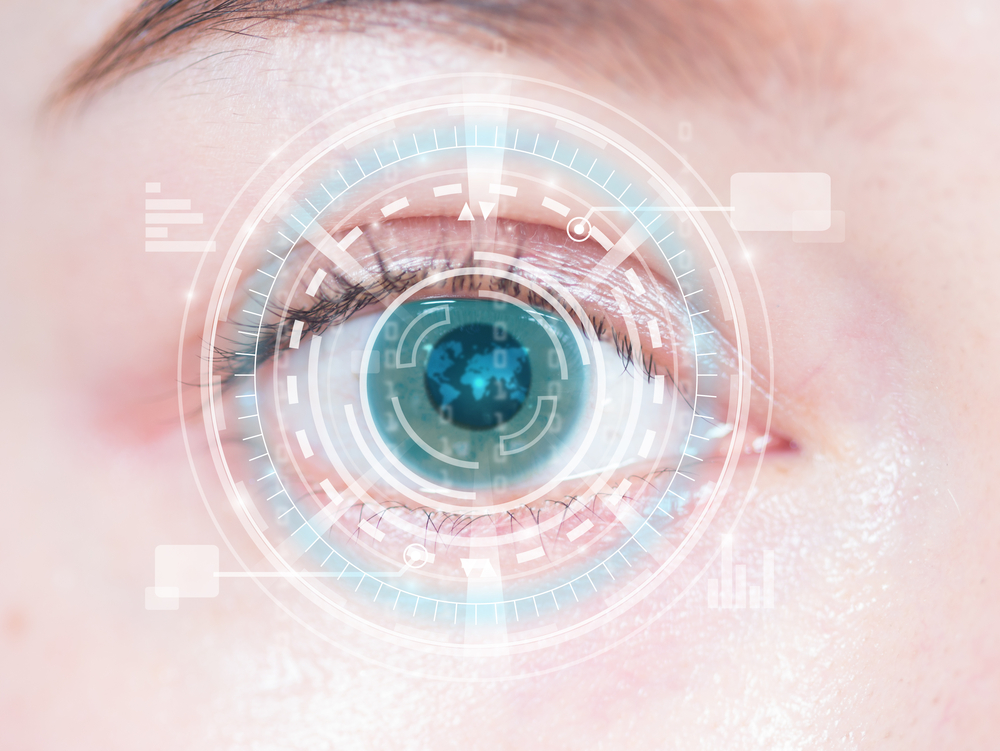
Smartphone-Connected Contact Lenses Give New Meaning to 'Eye Phone'

Get the world’s most fascinating discoveries delivered straight to your inbox.
You are now subscribed
Your newsletter sign-up was successful
Want to add more newsletters?

Delivered Daily
Daily Newsletter
Sign up for the latest discoveries, groundbreaking research and fascinating breakthroughs that impact you and the wider world direct to your inbox.

Once a week
Life's Little Mysteries
Feed your curiosity with an exclusive mystery every week, solved with science and delivered direct to your inbox before it's seen anywhere else.

Once a week
How It Works
Sign up to our free science & technology newsletter for your weekly fix of fascinating articles, quick quizzes, amazing images, and more

Delivered daily
Space.com Newsletter
Breaking space news, the latest updates on rocket launches, skywatching events and more!

Once a month
Watch This Space
Sign up to our monthly entertainment newsletter to keep up with all our coverage of the latest sci-fi and space movies, tv shows, games and books.

Once a week
Night Sky This Week
Discover this week's must-see night sky events, moon phases, and stunning astrophotos. Sign up for our skywatching newsletter and explore the universe with us!
Join the club
Get full access to premium articles, exclusive features and a growing list of member rewards.
Apps allow you to link your smartphone to anything from your shoes, to your jewelry, to your doorbell — and soon, you may be able to add your contact lenses to that list.
Engineers at the University of Washington have developed an innovative way of communicating that would allow medical aids such as contact lenses and brain implants to send signals to smartphones.
The new tech, called "interscatter communication," works by converting Bluetooth signals into Wi-Fi signals, the engineers wrote in a paper that will be presented Aug. 22 at the Association for Computing Machinery's Special Interest Group on Data Communication conference in Brazil. [Bionic Humans: Top 10 Technologies]
"Instead of generating Wi-Fi signals on your own, our technology creates Wi-Fi by using Bluetooth transmissions from nearby mobile devices such as smartwatches," study co-author Vamsi Talla, a research associate in the Department of Computer Science and Engineering at the University of Washington, said in a statement.
Interscatter communication is based on an existing method of communication called backscatter, which lets devices exchange information by reflecting back existing signals. "Interscatter" works essentially the same way, but the difference is that it allows for inter-technology communication — in other words, it allows Bluetooth signals and Wi-Fi signals to talk to each other.
Interscatter communication would allow devices such as contact lenses to send data to other devices, according to the researchers. Until now, such communication had not been possible, because sending data using Wi-Fi requires too much power for a device like a contact lens.
To demonstrate interscatter communication, the engineers designed a contact lens equipped with a tiny antenna. The Bluetooth signal, in this case, came from a smartwatch. The antenna on the contact lens was able to manipulate that Bluetooth signal, encode data from the contact lens and convert it into a Wi-Fi signal that could be read by another device.
Get the world’s most fascinating discoveries delivered straight to your inbox.
And though the concept of "smart" contact lenses may seem a bit gimmicky, they could, in fact, provide valuable medical information to patients.
For example, it is possible to monitor blood sugar levels from a person's tears. Therefore, a connected contact lens could track blood sugar levels and send notifications to a person's phone when blood sugar levels went down, study co-author Vikram Iyer, a doctoral student in electrical engineering, also at the University of Washington, said in a statement. (Monitoring blood sugar levels is important for people with diabetes.)
The researchers also said interscatter communication could be used to transmit data from brain implants that could one day help people with paralysis regain movement.
Not all of the potential applications are related to medical devices, however. Interscatter communication could also exchange information between credit cards, the researchers wrote. This would allow people to transfer money between cards by simply holding them near a smartphone, for example, they said.
Originally published on Live Science.

 Live Science Plus
Live Science Plus





